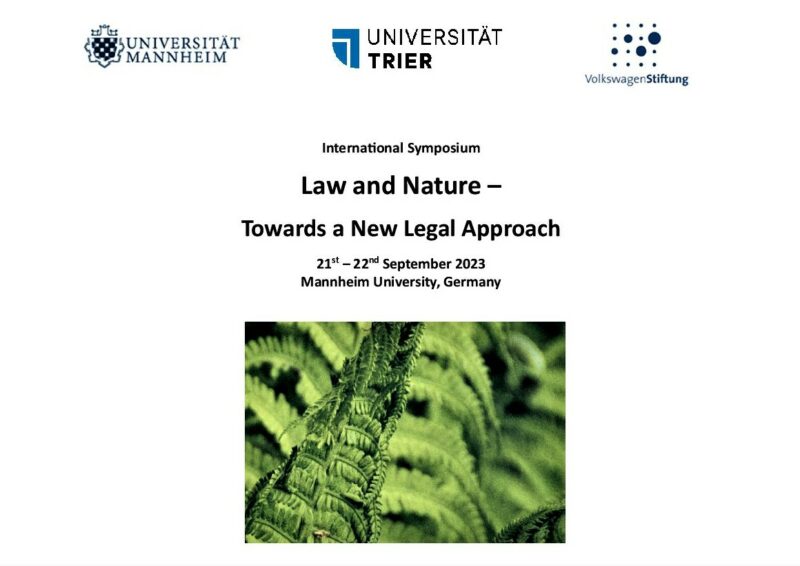To Be Kept Away From Power
We are launching the Thuringia project! Our crowdfunding campaign has got off to a very successful start, and after less than two weeks has already almost reached the 50 percent mark. We can now put together the core team and start conceptualising and implementing as early as next week. We have no time to lose. 50 percent in, 50 percent to go: We continue to need all the support we can get. If you can think of people who might perhaps take interest in the project of scrutinizing the resilience of the state constitution in the event of an authoritarian-populist rise to power, please do let them know, and/or generally promote the project on your channels, will you? That would be great. Here is the link. Thank you so much!
Many only realised last weekend how close and real the prospect of an authoritarian-populist takeover in Thuringia seems to be by now. In the rural district of Sonneberg in southern Thuringia, the AfD party is, for the first time, on the verge of occupying a state office as a result of a won election. The proof, it seems, is in: majorities beyond 50 per cent for an extreme right-wing party are a scenario to be reckoned with in parts of Thuringia. Outvoting and isolating the AfD as a democratic competitor is not reliable enough a way to keep it away from of state power any more. The fact that it is the AfD itself that likes this interpretation best of all only makes it even more bitter.
One might be inclined to play down the Sonneberg incident as mere regional news. After all, it is only about an administrator in a tiny provincial district who, after all, unlike a state government, can hardly use his power to tweak the constitutional foundations of the same to his own favour. But the AfD fellow who is now to fill this office would be a very lousy AfD fellow indeed if, after taking office, he did not haste to use his powers for all sorts of authoritarian populist games. A strategic breach of the rules here, a deliberate overstepping of his competences there, and if the higher authorities and/or courts then intervene, so much the better: that’s just what you ordered to stir up the anger of the locals against the snotty interfering metropolitan elites you keep capitalizing on.
++++++++++Advertisement++++++++

Mankind is currently living in the Anthropocene, modifying nature at a faster pace and more intensively than ever before. The consequences are grave and affect every single area of human life, from health to food security to transportation and trade. Law & Nature intends to explore how law and legal doctrine can be aligned in a more general matter with insights about the rapid change of nature, climate and the environment.
Further infomation can be found here.
++++++++++++++++++++++
The office of Landrat or district administrator, for which the AfD man successfully ran, is that of an elected civil servant. Whoever wins this election does not gain a political mandate, but enters the service of the state. Civil service law and electoral law interfere here in a strange and very German way. A district administrator owes to the King the freie demokratische Grundordnung not only what politicians owe it, namely not to seek its overthrow, but what civil servants owe it, namely loyalty. Loyalty, according to the Federal Constitutional Court in the controversial Extremistenbeschluss of 1975, means “more than just a formally correct, otherwise uninterested, cool, inwardly distanced attitude towards the state and the constitution; it demands of the civil servant in particular that he or she clearly distances him- or herself from groups and endeavours that attack, fight and defame this state, its constitutional organs and the standing constitutional order. The civil servant is expected to recognise and acknowledge this state and its constitution as a high positive value that is worth standing up for”. He is expected to be “prepared to bear responsibility for this state, for ‘his’ state” and to “feel at home in the state he is supposed to serve”.
The Thuringian Municipal Elections Act sets as a prerequisite for being eligible for the office of district administrator that one “guarantees that (one) stands up at all times for the free democratic basic order in the sense of the Basic Law and the Land Constitution” (§§ 24 para. 3, 28 para. 2 ThürKWG). The electoral committee must form an opinion on this and, if they do not see sufficient guarantee, remove the candidate from the electoral list (section 22 (2) ThürKWG). What if they don’t? As long as the ineligible candidate does not win, this does not lead to an unlawful situation, so no-one cares. However, if the candidate does win and thus becomes district administrator even though being uneligible, then the authority in charge of legal supervision must declare the candidate unfit for office within six weeks of knowledge and order new elections (§ 30 para. 6, 7 ThürKWG).
Politically, the price of doing either of this in the current case certainly seems high. If the supervising authority comes to the conclusion that the AfD man does not offer this guarantee and annuls the election, it exposes itself and the Thuringian state government to the accusation of making the validity of an election dependent on its outcome. If it comes to the opposite conclusion, it gives the AfD man a democratic clean bill and possibly also exposes itself to the suspicion of having opted for the politically less inconvenient solution and against the law.
Legally, however, unless I’m mistaken, there is little to be said. The fact that the matter of eligibility wasn’t settled before the election can, if any, be blamed on the election committee, but hardly on the supervising authorities. It seems all the more remarkable to me that this procedure was met with such surprise. Against this background, it seems even more evident to me how urgent it is to think in scenarios. What happens if those people actually win? If this question had been thoroughly investigated at an early stage, much of the embarrassment could have been avoided. Hence our Thuringia project. We will do scenario analyses. The state elections are just a little more than a year away.
Meanwhile, things are as they are, and the rule of law must stand. Whether the Sonneberg AfD candidate offers sufficient guarantees that he is not in bed with Nazis must be examined in detail. If he is, then he must not be a district administrator. The government will have to put up with the noise that the AfD will then make, including the accusation that the established parties are ganging up to keep the AfD out of state power. There is nothing wrong about that at all. The Thuringian AfD must indeed be kept away from state power. Not because of its objectionable policy goals, not because of its uncouth manners, not because it is “bad for Thuringia as a business location”, not because it is a political opponent. But because it would use the democratically won power to the detriment of democracy. Therefore, it must be categorically kept away from power. If all “established” parties explicitly and reliably agree on this, then that’s a gain and not a loss for democracy.
The Week on Verfassungsblog
… summarised by PAULA SCHMIETA:
ANDREAS NITSCHKE examines the Sonneberg election and its legal background and concludes that there are good arguments to doubt the AfD candidate’s loyalty to the constitution.
In Russia, the aborted Wagner coup reveals that there are no formalised, legal mechanisms for peaceful resolution of disputes within the elite. According to WILLIAM PARTLETT, the resulting expanding prerogative state poses a serious threat to Putin and the Russian state. SARAH KATHARINA STEIN looks at what is happening from the perspective of international law. She says the failed coup could open a window to regulate private security and military companies (PMCs) – because Wagner is not a mercenary force at all, but a private military company.
Ahead of the Polish parliamentary elections this year, a key question is whether Poland’s rule of law can be restored. TOMASZ TADEUSZ KONCEWICZ argues that top-down institutional reforms won’t be enough – to ensure lasting change a culture of constitutional fidelity among Poland’s citizens is needed too.
The Council of the EU recently reached an agreement on how to reform the Common European Asylum System. This agreement, however, is a direct threat to the right of asylum and contains rules which are in clear violation of key human rights standards say MINOS MOUZOURAKIS & CATHRYN COSTELLO.
++++++++++Advertisement++++++++

The University of Luxembourg is looking for a PhD candidate to conduct research in EU Law:
Doctoral researcher (PhD) in EU Law.
Candidates who can show an interest in EU and transnational public law are encouraged to apply by 15 July 2023. A Master’s Degree in EU law or a related field is required. The doctoral researcher will benefit from being integrated into the Doctoral School of Law and the possibility of joining various research groups working on related topics of EU law and European affairs.
Further information can be found here.
++++++++++++++++++++++
Due to the E-Evidence Regulation, the EU is negotiating with the US government on the transfer of data for law enforcement purposes. PETER MEIßNER believes the Commission to be in a bad negotiating position and fears a comprehensive access of US investigators to data stored in Europe.
What are the potential effects of generative AI on political campaigning and democratic elections? PHILIPP DARIUS & ANDREA RÖMMELE argue that generative AI will intensify existing problems concerning content moderation, media trust and false information online.
In Israel, the Knesset is currently debating the police’s use of the spyware Pegasus (aka Saifan) – which was used to surveil Israeli citizens, including political activists. STAV ZEITOUNI & NOA DIAMOND offer an overview of the debate and stress that outdated laws and non-transparent operations make public accountability intensely and unduly difficult.
German Verfassungsschutz has introduced the category of ‘constitutionally relevant delegitimization of the state’ as a case for surveillance. What does that category mean exactly? OLIVER DREWES argues that this vague category to target radicalised opponents of vaccination does certainly not do extremism prevention any favours.
The case of Pudding, in which a social worker is accused of having spread “subliminal insinuations, which worked toward inflicting violence” on a public prosecutor in Leipzig, shows the weaknesses of §126a StGB so CHARLOTTE KORENKE, MARIUS KÜHNE & SEBASTIAN J. GOLLA, who regard the provision to be too indeterminate.
Lastly: our blog debate Nachhaltigkeit in Zeiten planetarer Krisen continued this week with contributions from LISA BEER and MATHIAS HONG. And LENA HERBERS delves into the question of the justifiability of civil disobedience in her contribution to the Kleben und Haften debate.
*
That’s all for this week. In the meantime, all the best to you!
Max Steinbeis
If you would like to receive the weekly editorial as an email, you can subscribe here.



